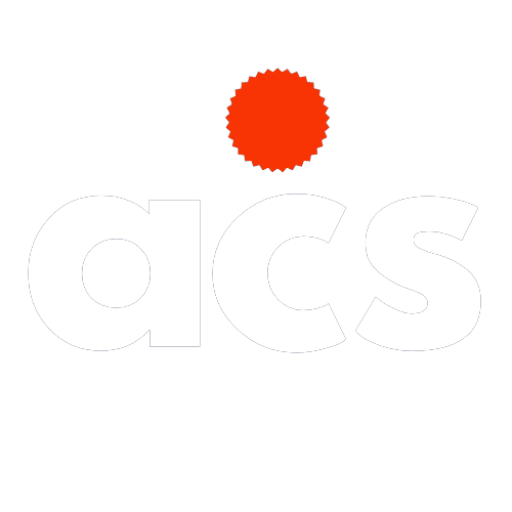
In today’s digital world, having a solid online presence is critical for any business’s success. A well-designed website is at the heart of any online presence. Your website serves as your virtual store and is frequently the first point of contact for prospective customers with your brand. However, more is needed to have a website simply; it is also necessary to have a website optimized for search engines and user experience. In addition, an effective website that is simple to use, visually appealing, and offers valuable information to customers will help you stand out from the crowd and generate more leads.
In this post, we’ll examine why an effective website is essential and how it can help your business prosper in today’s digital economy. We’ll also go through the components of an effective website, best practices for creating your website, search engine optimization, the value of content in your online presence, using social media for your website, and monitoring the performance of your online presence.
The Importance of Having an Effective Website
To remain relevant in today’s digital age, businesses must have an online presence. An effective website serves as the foundation for your internet presence. It is a place where potential customers can discover more about your brand, goods, and services. An effective website can establish credibility and trust with your target audience. It can help you generate leads, increase revenue, and expand your reach.
Your business might only succeed if you have an effective website. If you have an effective website, you’re taking advantage of prospective clients looking for products and services online. You are also offering your competitors a competitive advantage. Consumers expect businesses to have a website in today’s digital world. With one, your business can appear updated and in touch.
An effective website may also assist you in saving time and money. Instead of investing time and money in traditional marketing strategies such as print advertisements or direct mail, you can reach a larger audience at a lesser cost using your website.

Advantages of Having an Online Presence
Businesses benefit greatly from having an online presence. One of the most significant advantages is the potential to reach a larger audience. An effective website allows you to access prospective customers all around the world. You are not restricted to a single geographic place, which might help you boost your customer base and revenue.
Your online presence also enables you to develop credibility and trust with your target audience. You can establish yourself as an authority in your subject by offering helpful information on your website. This can help you in gaining a devoted following and increasing customer loyalty.
The opportunity to collect data and insights about your audience is another advantage of having an online presence. You can measure website traffic, user activity, and other data with tools like Google Analytics, which can assist you in making informed choices about your marketing approach.
The Elements of an Effective Website
An effective website should be easy to navigate, visually appealing, and provide valuable information to your audience. Here are some fundamental elements of a successful website:
Clear Navigation
Your website should have a simple and easy-to-use navigation menu. Visitors should be able to swiftly and efficiently find what they’re looking for. Use descriptive labels for your navigation menu items and group related pages together.
Responsive Design
Your website should be optimized for all devices, like desktop computers, laptops, tablets, and smartphones. This entails employing a responsive design that adapts to various screen sizes. Attracting and maintaining visitors requires a mobile-friendly website.
Visual Appeal
Your website should be visually appealing and represent the personality of your brand. Make your website stand out by using high-quality pictures and graphics. Choose a color scheme appropriate to your brand and pleasing to the eye.
Valuable Content
Your website should deliver helpful information to your visitors. Product descriptions, blog posts, case studies, and other sorts of material that assist your audience in making educated decisions are examples of this. Your content should be well-written, engaging, and easy to read.
Calls to Action
Calls to action on your website should be clear and inspire users to take the next step. This can include subscribing to a newsletter, completing a contact form, or purchasing. Your calls to action should be visible and easy to find.

Search Engine Optimization (SEO) for Your Effective Website
Improving your website to rank better in search engine results pages (SERPs) is called search engine optimization (SEO). You can attract more organic attendance and boost your online presence by optimizing your website for search engines. Here are some SEO recommendations for improving your website:
Keyword Research
Determining the keywords and phrases your target audience is searching for is known as keyword research. Identify appropriate keywords using keyword research tools and apply them to your website content.
Technical Optimization
Technical optimization includes improving the technical features of your website, such as load speed, mobile responsiveness, and site structure. It can assist in enhancing the speed and user experience of your website.
Link Building
Link building entails obtaining backlinks from other websites to your own. Backlinks can assist your website in gaining authority and exposure in search engine results.
On-Page Optimization
On-page optimization involves optimizing individual pages on your website for specific keywords. This includes optimizing page titles, meta descriptions, headings, and content.
Measuring the success of your online presence is essential to making informed decisions about your marketing strategy. Here are some metrics to track:
Measuring Your Online Presence Success
Measuring the success of your online presence is essential to making informed decisions about your marketing strategy. Here are some metrics to track:
Website Traffic
Track your website traffic to understand how many visitors are coming and which pages are the most popular.
Conversion Rates
Track your conversion rates to understand how many visitors are taking a desired action, such as filling out a contact form or purchasing.
Social Media Engagement
Track your social media engagement to understand how many likes, comments, and shares your content receives.
Search Engine Rankings
Track your search engine rankings to understand where your website ranks for specific keywords and phrases.

Conclusion
Ultimately, in today’s digital world, having an effective website is critical for the success of any business. An effective website can help you establish credibility, develop trust, and attract more leads. You can establish a solid online presence that helps you reach your business’s goals by following the best website design, SEO, and content creation practices. Remember to monitor your progress and make well-informed marketing decisions. With a significant online presence, you can harness the power of the digital world and push your business forward. Also, remember that our team of experts is always there to help you, so contact us if you have any queries or need assistance creating effective websites.


